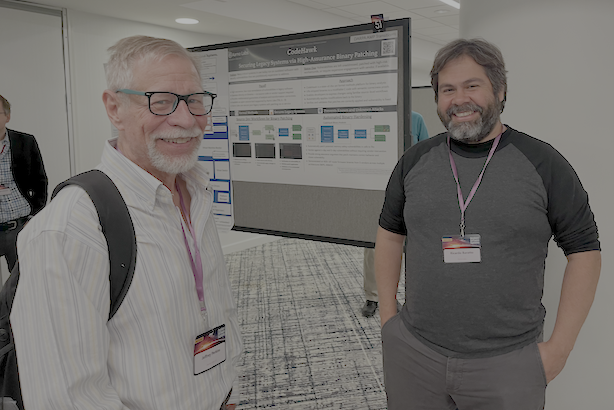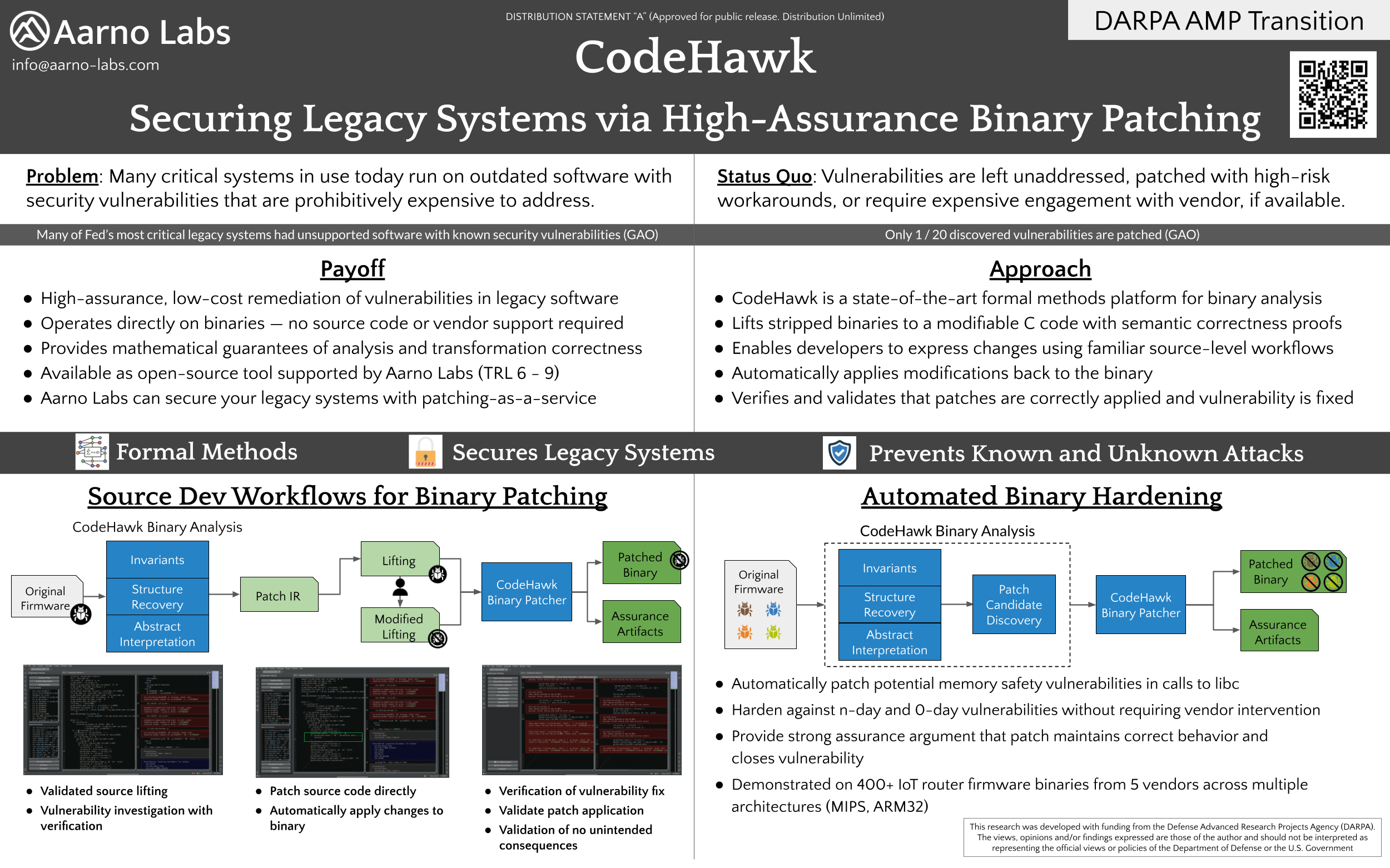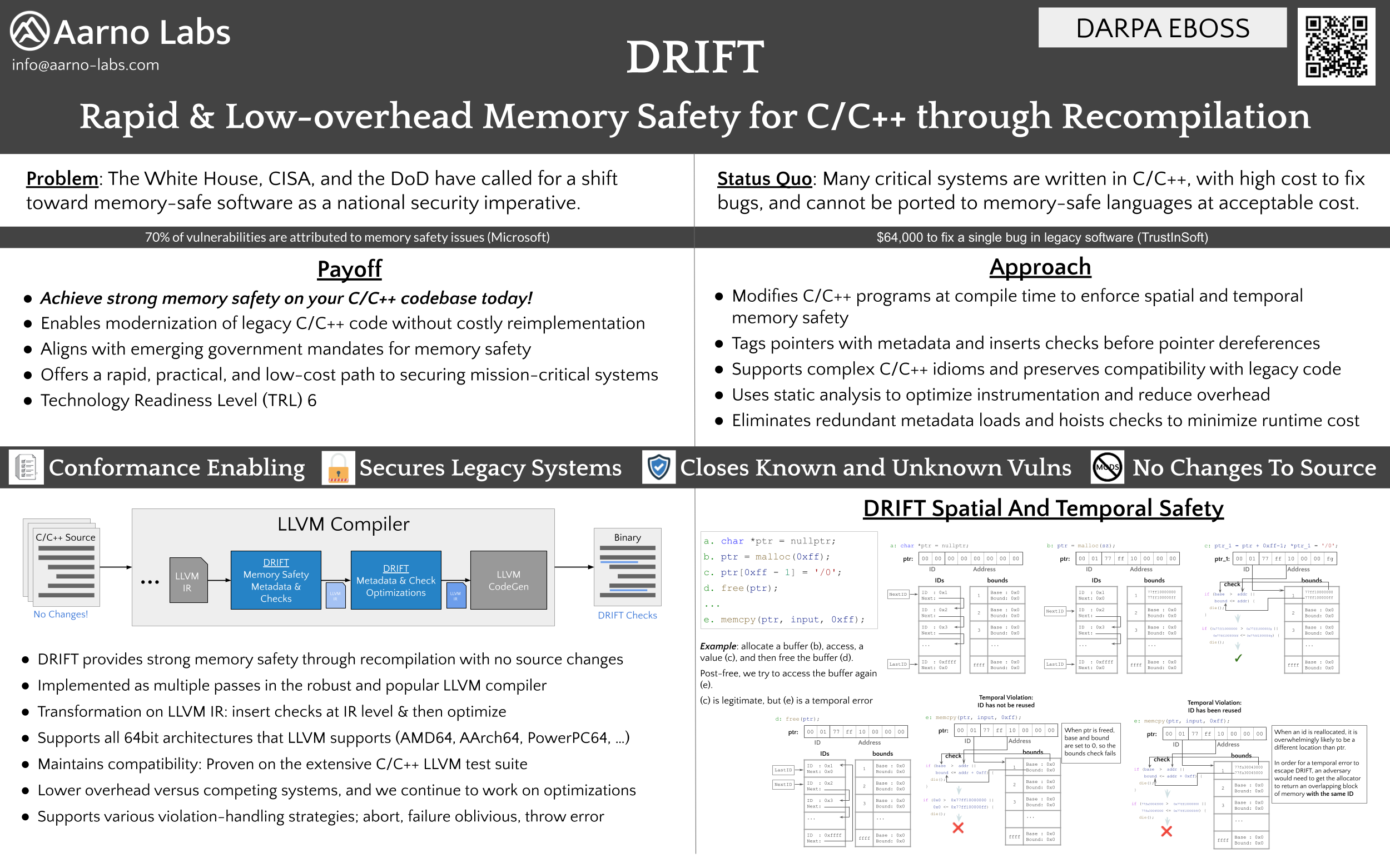
On June 17, 2025, Aarno Labs presented two solution posters at DARPA’s Resilient Software Systems Colloquium (RSSC), an event highlighting innovative efforts to build trust, security, and resilience into the software foundations of critical systems. Our contributions focused on two complementary challenges: high-assurance patching of legacy binary firmware and practical memory safety for C/C++ code through compiler-based transformation.
Securing Legacy Firmware with CodeHawk

Our first poster, CodeHawk: Securing Legacy Systems via High-Assurance Binary Patching, showcased Aarno’s open-source formal methods platform for binary analysis and patching. CodeHawk lifts stripped firmware binaries to source-like representations with accompanying correctness proofs. This enables patching at the source level with automated application of those changes back to the binary, without vendor support or access to the original source code.
Highlights:
- High-assurance, low-cost remediation of vulnerabilities in legacy software
- Requires only (stripped) binaries — no source code or vendor support required
- Provides mathematical guarantees of analysis and transformation correctness
- Demonstrated on hundreds of IoT firmware binaries across MIPS and ARM32
- Demonstrated ability to fix or harden vulnerabilities with no source access
This work addresses the growing backlog of vulnerable legacy and end-of-life systems with no viable support channel and offers a path toward resilient and trustworthy remediation.
DRIFT: Compiler-Based Memory Safety

The second poster, DRIFT: Rapid & Low-overhead Memory Safety for C/C++ through Recompilation, introduces a compiler-based approach for enforcing spatial and temporal memory safety in legacy C/C++ programs. DRIFT automatically inserts metadata and safety checks at compile time while applying sophisticated static analysis to minimize performance overhead. The DRIFT system provides strong guarantees, less overhead, and higher compatibility than previous systems for retrofitting memory safety on C/C++.
Key features:
- No source code changes required
- Supports all major 64-bit architectures (e.g., x86_64, AArch64)
- Compatible with complex C/C++ idioms and existing build pipelines
- Provides configurable runtime responses (abort, fail-continue, etc.)
DRIFT aligns with the broader national push—from the White House, CISA, and DoD—to eliminate memory safety vulnerabilities while maintaining compatibility with existing critical software.
Why This Matters
Together, these efforts represent a strategic vision for system resilience: enabling defenders to retrofit security into legacy systems, even in the absence of vendors, and to bring modern safety guarantees to unmodified C/C++ applications. The tools are under active development, with Technology Readiness Levels (TRL) ranging from 6 to 9, depending on the use case, and are available for transition today.
We’re grateful to DARPA for the opportunity to share our work and to collaborate with peers addressing the most complex challenges in software assurance.
